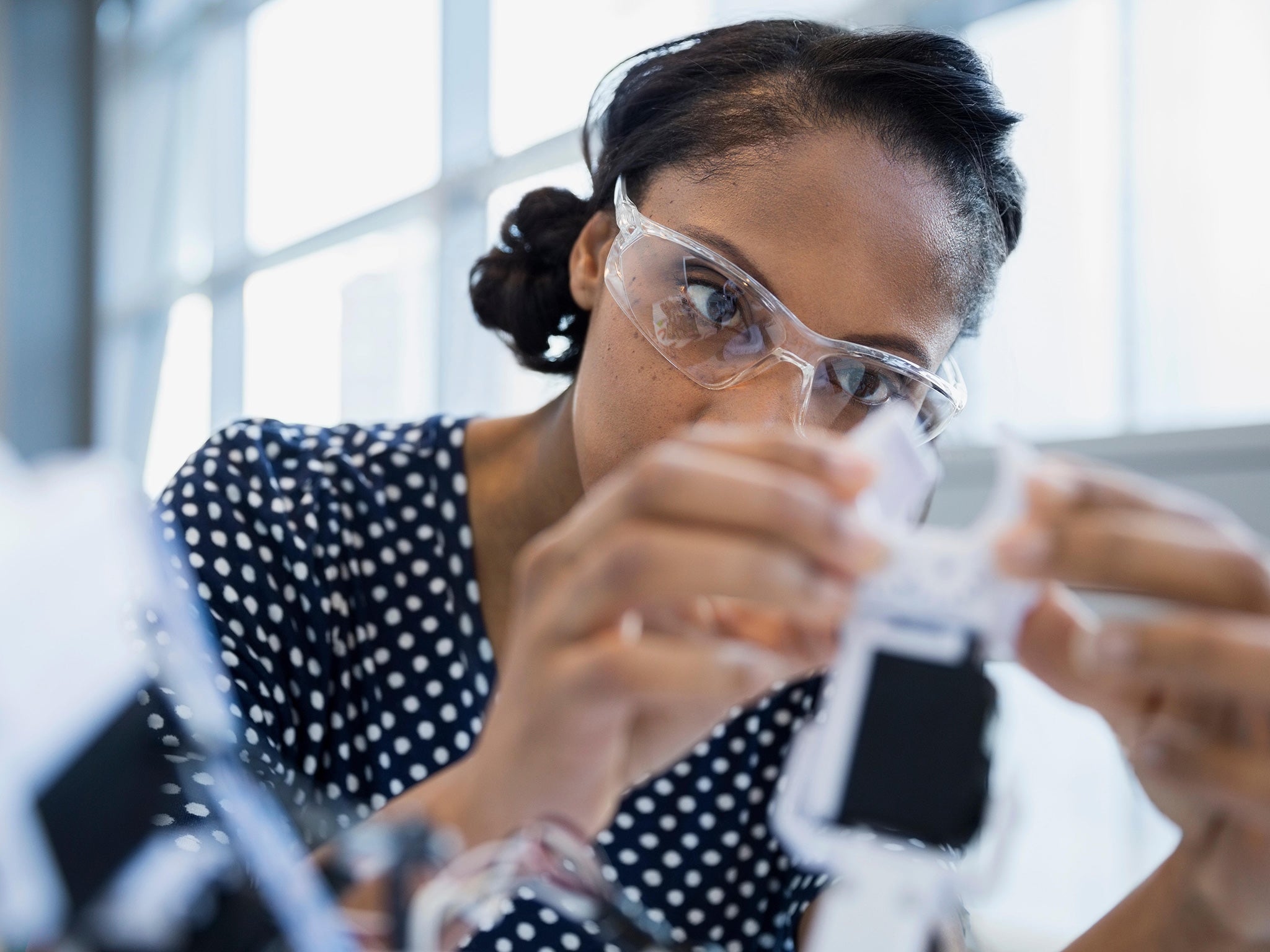Female engineers: Equalising the path to a career at the forefront of science
There’s new encouragement for women to opt into studying this enriching science and gain a rewarding career, in all senses of the word

As young people fret about job prospects and mounting debts, there's a well paid, highly respected and rewarding profession that would welcome them with open arms – if only they knew it existed.
Engineering is the career you didn't know you wanted: engineering students are second only to medics in securing full-time jobs and earning good salaries on graduation. It's a job where you get promoted quickly and have the satisfaction of making a real and tangible difference to the world we live in, be it designing waste-to-energy solutions, implementing smart city initiatives or providing solutions to humanitarian crises around the world.
And we don't have enough of them: governments of different political complexions, industry and universities have long worried about the looming shortfall of engineering talent. And we certainly don't have enough women: they account for just 8.2 per cent of professional engineers.
This matters: the big problems facing our planet will require the pooling of the brightest minds and most creative problem-solvers. “Innovation requires diversity so you get a range of thinking and different strengths,” says Dawn Bonfield of the Women's Engineering Society (WES), which was founded in 1919 and, almost 100 years later, finds the proportion of women working in engineering has barely changed.
“Engineering isn't visible enough to young people at school. It's not taught as a subject and people aren't clear about what professional engineers do,” explains Bonfield. “The second problem is the stereotypes we have about girls and boys; it starts very young, in the toys we give them, what they pick up in school. We will not make the big step change until we start to address these societal issues.”
This is echoed by Bola Fatimilehin, head of diversity at the Royal Academy of Engineering, who says the pervasive culture of gender stereotypes subtly but powerfully shapes educational and career choices from a young age. It doesn't have to be like this: Fatimilehin highlights research showing the UK has lowest proportion of female engineering professionals in the EU. “Schools need to challenge these stereotypes and we need better careers advice for young people,” she says.
Those charged with getting more girls into engineering say we need to consider more disruptive changes: make science compulsory until 18 or provide financial incentives for those who study engineering at undergraduate level.
From the US, there are signs that programmes which promote the societal good of engineering can overturn gender stereotypes: UC Berkeley, Arizona State University and the inter-disciplinary D-Lab at M.I.T. report such courses see significant uplift in female enrolment.
It worked for medicine, where women now outnumber men at undergraduate level. Could it work for engineering, where just 16 per cent of undergraduates are women?
Subscribe to Independent Premium to bookmark this article
Want to bookmark your favourite articles and stories to read or reference later? Start your Independent Premium subscription today.

Join our commenting forum
Join thought-provoking conversations, follow other Independent readers and see their replies